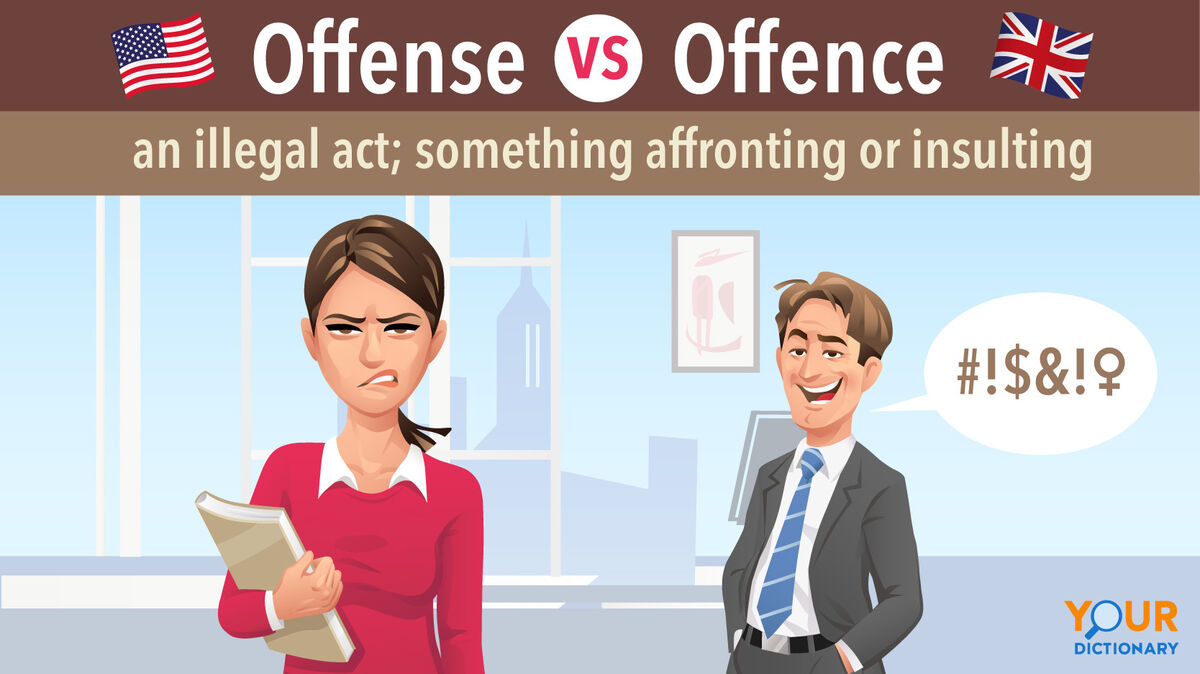
Do you take offense to something or take offence? Do you commit a criminal offense or offence? This is a trick question because ultimately both are correct.
The Difference Between Offense and Offence
As with other words that end in -se or -ce, the difference comes down to if you are using American or British (also known as Commonwealth) English. Offense is favored in American English while offence is the preferred spelling in British, Canadian, Australian, and New Zealand English.
offense (American English) - an illegal act; something affronting or insulting
offence (British English) - an illegal act; something affronting or insulting
Using Offense and Offence in Context
Offense and offence are two spellings of the same noun that have the same meaning. They are defined as “an illegal act,” “something that offends or outrages” or “a state of being insulted.” Both words are pronounced oh-FENS with stress on the second syllable. In sports, offense or offence refers to "attacking or engaging the opposing team to score points." When you use this version of the term, put emphasis on the first syllable (AW-fens).
I meant no offense/offence.
She took offense/offence at his comment.
It’s an offense/offence to drive without a seat belt in several states.
Piracy is a criminal offense/offence.
The rival team took the offense/offence and scored.
Tips to Remember the Difference
Offense is spelled with an “s,” which you can associate with the "s" in U.S. where the -se spelling is used. The “c” in offence can also stand for commonwealth, which are the countries that use the -ce spelling.
Differentiate Between American and British Spellings
One of the best ways to become a proficient speller is learning to differentiate between American and British spelling standards. A common spelling mistake to keep in mind is the difference between words ending in -se and -ce like offense and offence or practice and practise. Another common difference is -se and -ze endings as seen in words like realise and realize.